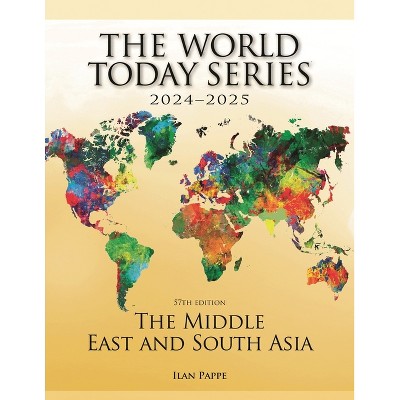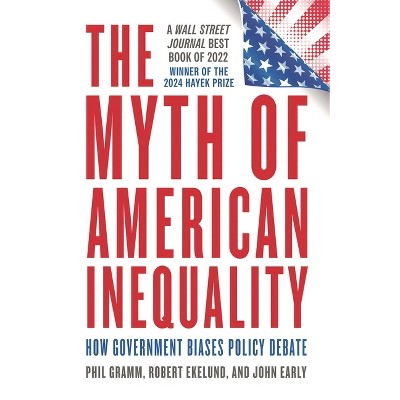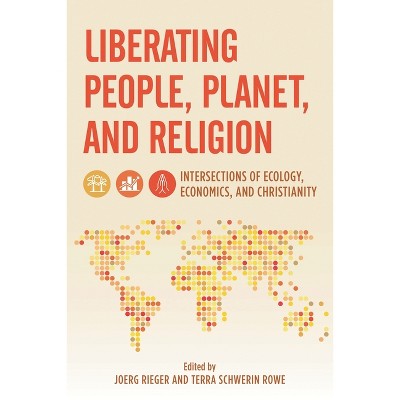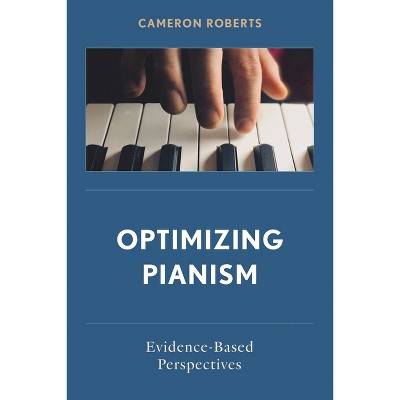Sponsored

Lebanon and Turkey - by Robert G Rabil
In Stock
Sponsored
About this item
Highlights
- This comprehensive account of Lebanon-Turkey relations--grounded in layers of cultural, political, demographic, economic, and sectarian complexities--analyzes the dynamics that have shaped Lebanon since Ottoman rule.
- About the Author: Robert Rabil is professor of political science at Florida Atlantic University.
- 272 Pages
- History, Middle East
Description
About the Book
This comprehensive account of Lebanon-Turkey relations-grounded in layers of cultural, political, demographic, economic, and sectarian complexities-analyzes the dynamics that have shaped Lebanon since Ottoman rule. It underscores the lessons learned from this relationship, loc...Book Synopsis
This comprehensive account of Lebanon-Turkey relations--grounded in layers of cultural, political, demographic, economic, and sectarian complexities--analyzes the dynamics that have shaped Lebanon since Ottoman rule. It underscores the lessons learned from this relationship, locating Lebanon-Turkey relations along a historical continuum.
Review Quotes
Professor Rabil does an excellent job explaining how the Ottoman Empire struggled to survive by applying a policy of mass killings, starvation, and deportations in the empire's provinces that sought to become more autonomous. It is interesting how an empire resorts to cruel methods to keep itself from falling apart. Rabil's study is also relevant to understanding contemporary Russia's involvement in Ukraine. The case of the Ottoman Empire can serve as a historical paradigm to analyze powers that struggle against their own decline. A brilliant and highly enlightening book.
Professor Rabil masterfully traces Turkish Middle Eastern policy from Sultan Abdul Hamid's Ottomanism to Davutoglu's Neo-Ottomanism and Erdogan's realism after the defeat of Arab popular uprisings that demonstrated the limits of Ankara's regional ambitions. Rabil's exceptional book educates students about the influence of Turkey in shaping Lebanon's sectarian alignments and guides researchers to its importance in understanding the significance of transnational ideas in exacerbating Arab countries' instability. Lebanon: From Ottoman Rule to Erdogan Regime is an essential read for those who wish to understand Turkey's history and present to predict its future.
Robert Rabil 's Lebanon-Turkey Relations: From Ottoman Rule to Erdogan's Regime," is a gift for those studying the history, politics, and culture of Lebanon and its important neighbor, Turkey. In recent years Turkey's foreign policy has become an often and serious topic of analysis for Middle Eastern scholars. This book provides an important addition to that literature. It is a unique study concentrating on Turkey's impact on the development of Lebanon from its early history to its current involvement in the country. Through archival research, and interviews abroad Dr. Rabil provides new insights into Ottoman policies leading to the Great Famine of 1915-1918, the roots of the confessional system, the growth of Arab Nationalism, the Cold War, Lebanon's civil war and Turkey's recent and growing involvement in Lebanon and the region. This is a key contribution to filling the missing piece of the Lebanese - Turkish relationship's place in today's Middle East foreign policy puzzle. It really is a must read!
Robert Rabil makes clear the complicated, conflicted, and tragic history of Lebanon and its relationship with its neighbors. This compelling, insightful, and courageous book helps us understand Lebanon's tangled and contentious history with its neighbors, Turkey and Syria. Lebanon is a microcosm of the Middle East, and Robert Rabil masterfully shows how its current crisis is rooted in history.
This is a refreshing, lucid, and seasoned research-based analysis that is crucial to understanding a contemporary Eastern Mediterranean in the midst of roiling shifts, what some have called 'the end of the Arab century.' A discerning survey probing deeply post-Ottoman Lebanese-Turkish relations, this book is of special importance on many levels to scholars of the Middle East but also genocide studies and the still 'hidden' history of the Great Famine on Mount-Lebanon. An edifying book and deeply researched, it is written and presented with clarity and deliberation yielding illumination.
Well researched, chronicled, and argued, Dr. Rabil's book stands out as a unique study, in so far as, to my knowledge, no other work has meticulously examined and scrutinized Lebanon's relationship with Turkey since Ottoman rule. The book successfully weaves together the major developments, including the overlooked Great Famine, of this relationship that helped shape modern Lebanon and continues to highlight both the chronic failures of the country's confessional system and the promise of better Lebanon-Turkey relations, against the backdrop of a fast-paced changing world order.
About the Author
Robert Rabil is professor of political science at Florida Atlantic University. He served as the Red Cross's Chief of Emergency in the Baabda region, Beirut, during Lebanon's civil war and was the project manager of the US State Department-funded Iraq Research and Documentation Project. He has been awarded the LLS Distinguished Faculty Award, LLS Distinguished Professor of Current Affairs, and FAU Scholar of the Year award. He was conferred with an honorary Ph.D. in humanities from the Massachusetts College of Liberal Arts.
He is author of Embattled Neighbors: Syria, Israel and Lebanon, Syria, the United States and the War on Terror in the Middle East, Religion, National Identity and Confessional Politics in Lebanon, Salafism in Lebanon: From Apoliticism to Transnational Jihadism, The Syrian Refugee Crisis in Lebanon: The Double Tragedy of Refugees and Impacted Host Communities, and White Heart.Shipping details
Return details
Frequently bought together
Trending Non-Fiction

















